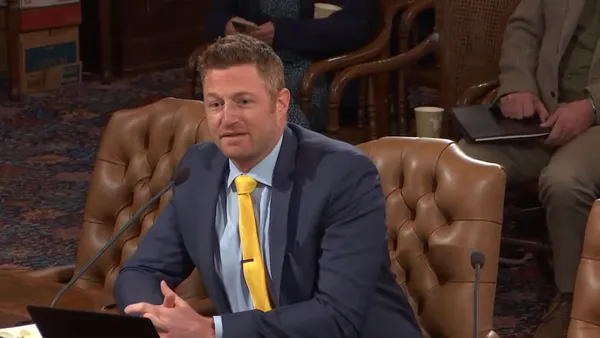Dive Brief:
- Austin, Texas now requires all food businesses — including restaurants, bars, farmers markets and grocery stores — to divert organic materials from landfills. The deadline to comply with the ordinance was Oct. 1, in keeping with the overall goal of achieving "zero waste" by 2040 set by the city's Universal Recycling Ordinance (URO).
- The URO provides a hierarchy of beneficial food scrap uses that businesses should refer to when devising diversion plans, in descending order: feeding hungry people, feeding animals, providing for industrial uses and composting.
- Businesses are required to make sure employees have access to the diversion program, post signs in English and Spanish near diversion stations or containers, provide educational programs and report annually on how diversion plans meet the city's ordinance requirements. Food businesses could be fined between $100 and $2,000 per day for each violation.
Dive Insight:
The organics diversion ordinance is the latest action in Austin's march toward achieving "zero waste" by 2040, which means keeping at least 90% of discarded materials out of landfills. The mandatory organics program regulation could make a significant dent in Austin's disposal rate, considering the city estimates that about 37% of what it sends to landfill is organic material that could have been donated or composted.
The commercial organics diversion mandate was previously phased in for larger businesses starting in 2016. This marks the final step in that implementation. Last fall, the city also required that all residential and commercial properties provide recycling services for tenants and employees. These types of commercial organics diversion mandates are becoming more common for large cities around the country, as seen in New York City and the Portland, Oregon metro area, among others.
Businesses often face a learning curve when implementing organics programs, and Austin Resource Recovery has put measures in place to ease the transition. The city has provided free online signs and educational resources so businesses don't have to start from scratch, as well as offering free training sessions. Businesses also will get some financial assistance for compliance in the form of tax incentives.
Even with the municipal assistance, getting the public to comply completely with a city's vision for achieving "zero waste" goals can be tricky. For example, San Francisco often is viewed as a recycling and waste diversion leader, but the city just revised its aggressive "zero waste" target from 2020 to 2030. Austin's goal may be more realistic because the city has given itself a more workable timeframe. Plus, being vocal about its free resources and training programs could create greater understanding of the goals and expectations, which can boost program participation.















